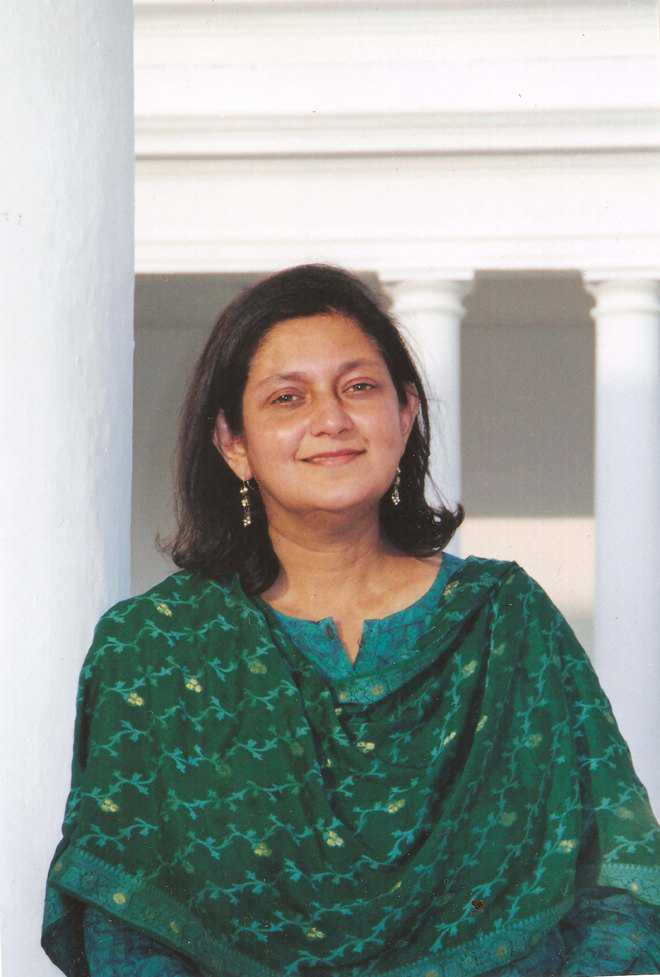Aradhika Sharma
Catriona Mitchell brings us a collection of 19 stories by some of the most effective women’s voices of India — telling of their experiences in being women in India in modern times. Their stories — that are both anecdotal and factual, span the past 50 years and so find resonance in us, verifying what Namita Gokhale says: “We are each other’s stories.”
On the whole, the book is feminine, feminist, human — sometimes strident; sometimes soft — mostly personal and many times, very honest in the writers’ intimate exploration of their motivations and the driving forces behind the life choices they’ve made. The book could find an echo with a female reader (and some male readers as well) to such an extent that she may feel that she is actually sitting with a group of vocal female friends, who are sharing episodes of their lived experiences with each other.
The experiences are as varied as the women themselves, yet with their disparate dialogue, they form a single strong voice — the expression of Indian womanhood. Thus among the authors who are walking towards ‘themselves’ are Tishani Doshi, who was conclusively influenced by the legendary choreographer and feminist, Chandralekha, Mitali Saran, who declares that she would rather ‘take the more fun road to hell’, Namita Gokhle, co-founder of the Jaipur Literary Festival, Tisca Chopra, the actress who opts for unconventional roles, Urvashi Butalia, co-founder of Kali for Women, Nirupama Dutt, poet and critic, Ira Trivedi, one of India’s ‘most important youth voices’ . The prologue is by Leila Seth, the first woman judge in Delhi High Court. The editor, Catriona Mitchell explains that she made this choice to set into perspective ‘legal framework that underpins the reality for women that live in India.’
With such multiplicity in the backgrounds, achievements, interests and life experiences of the women authors, it is natural that the stories they tell would be in dissimilar settings. Tisca Chopra thus tells of the casting couch on the Bollywood film sets in her story Cast Away. Urvashi Butalia‘s Oxygen explains the strong motivation in establishing India’s first feminist publishing house, Kali for Women. In Karaikal Ammaiyar and her Closet of Adornments, Sharanya Manivannan, employing the metaphor of clothes, writes about ‘the heartache of living in a time when beauty and power cannot always co-exist.’ Nirupama Dutt’s Two sisters, Two Lives examines the contrast between her life and the heartbreaking and futile life of her sister (28 years older) questioning in the end: ‘Where does your life end and mine begin?’ Ira Trivedi’s Rearranged Marriage talks of India’s extreme obsession with the colour of the skin of the bride in the marriage mart while in her other story, Love in the Time of the Internet, she tells of her experiences of working in the office of a dating app — Truly Madly — which was actually bringing dating between couples out of the closet and felicitating people to meet for a date rather than for marriage.
Contributors to the anthology also include Chitra Banerjee Divakaruni, Anita Agnihotri, Deepti Kapoor, Salma, Leila Seth, Sharanya Manivannan, Annie Zaidi, Anjum Hasan, Margaret Mascarenhas, Ambai, Pallavi Sharda, and Rosalyn D’Mello.
In the foreword, Mitchell states that ‘The aim was to share the intimate details of a real life and create a diverse, wide-ranging collection of stories that say: This is what our lives look like’. She’s certainly achieved the aim. This is one of the most representative works on what the lives of women in the 21st century India are looking like. Certainly, one thing is apparent — that conversations are taking place and gender and identity is being talked about. In times of startling and intense change, such as these, such writings and dialogues can only be a good thing!
Unlock Exclusive Insights with The Tribune Premium
Take your experience further with Premium access.
Thought-provoking Opinions, Expert Analysis, In-depth Insights and other Member Only Benefits
Already a Member? Sign In Now










